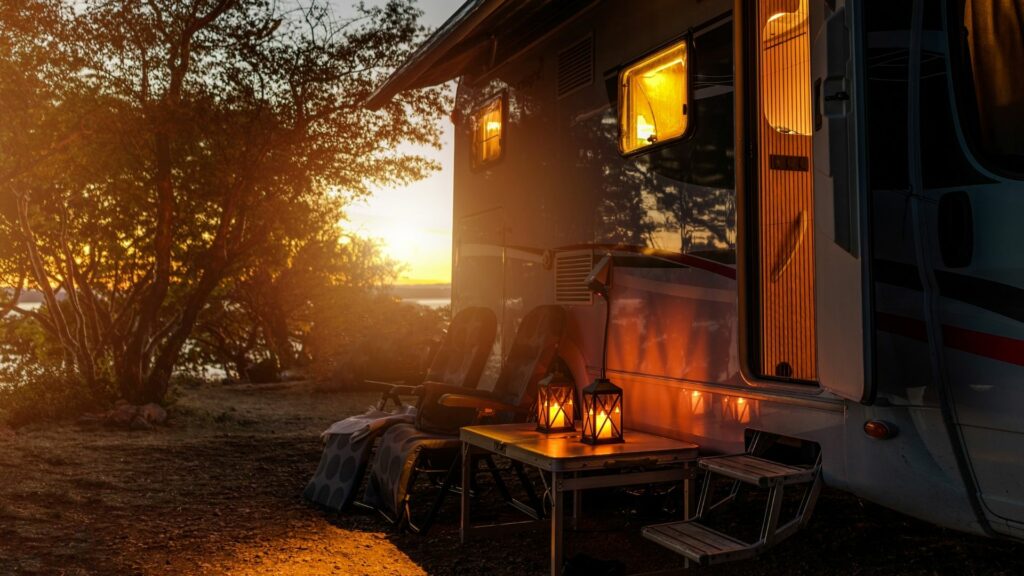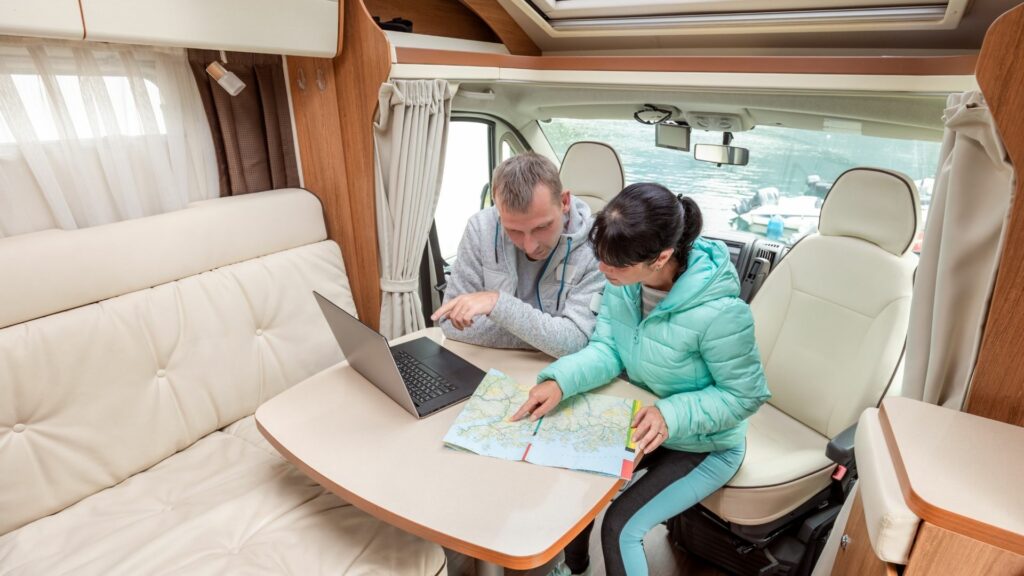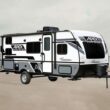Table of Contents Show
Most rigs today come with an onboard furnace, but are they really useful? In this article, we take a closer look at RV furnaces, including how they work, how much propane they use, and the pros and cons of having one.
We hope this information helps you determine whether or not this is an RV accessory you actually need. Let’s get into it.
Do I Really Need an RV Furnace?
Most RVs today come with a furnace, but do you really need one? If you’re only camping in beautiful weather, you might not ever use it. Sometimes RVers who have a furnace choose other methods of heating to save on propane.
So how do you know if you’ll benefit from having one in your RV? Here are the pros and cons of having a furnace.

Benefits of Having an RV Furnace
RVs are basically homes on wheels, so having a heating source makes it feel so much more cozy and homey. Here are the main benefits of having a furnace in your rig.
Winter Camping
An RV furnace is a perfect appliance for winter camping and full-time RVing. Just like a furnace in a home, your RV furnace will kick on when the temperature drops below your thermostat setting. This keeps you warm and cozy while you’re sleeping and keeps your RV warm when you’re out adventuring.
Some Are Ducted to Your Storage Bays
Many larger RVs and “four-season” RVs have heater ducts in the storage bays underneath. This helps prevent your pipes from freezing and cracking during cold temperatures and helps keep the floor of your RV warm, too.
Pro Tip: If you’re considering an RV with mods for cold weather camping, you need to check out the best 4 season camper brands on the market.

Warm Up on Cool Mornings
In some places, it’s warm during the day but gets really chilly overnight, and your RV furnace is the perfect way to get warmed up on cool mornings. Even if you don’t run it all the time, the ability to kick it on right when you need it is so convenient.
A Built-In Heater Is Better Than a Space Heater
A built-in heater is better than a space heater for several reasons. It’s easy to operate with a regular thermostat, just like you’d find in a sticks and bricks home. It also doesn’t take up any additional space in your RV.
Cons of RV Furnaces
Still wondering if a furnace is for you? Here are the main cons of having one.
Can Go Through a Lot of Propane
Propane-powered RV furnaces can go through a lot of propane in a short amount of time if you’re using them on a high setting. This can be a deterring factor for some people. Some, therefore, opt to use a small space heater to heat just one room of the RV instead.
Pro Tip: Learn how to hook up external propane tanks to your RV to supplement your propane supply if you use your RV furnace often.
Another Appliance to Service
A furnace in your RV is just another appliance that will eventually need maintenance or service. For some people, this can be a major hassle and a significant downside.
FAQs About RV Furnaces
Personally, we think having a furnace in your rig is a great thing. Here are the answers to the most commonly asked questions we get about RV furnaces.
How Does a Propane RV Furnace Work?
A propane furnace in your RV works similarly to a gas or propane one in a house. The furnace connects to your onboard propane tank. You control the furnace with a thermostat, just like a home furnace.
When the temperature in your rig drops below the thermostat setting, your propane furnace kicks on to heat up your rig. A propane flame heats the furnace while an electric blower blows the hot air to heat up your rig.
Can You Run Your RV Furnace While Driving?
Yes, you can run your furnace while driving, but we really don’t recommend it. Running your furnace while driving requires leaving your propane on while driving. That’s a fire hazard and an accident waiting to happen.
How Much Propane Does an RV Furnace Use?
A 30k BTU RV furnace uses around one gallon of propane with three hours of continuous use on full heat. So if you have a 10lb propane tank, you’ll get about 30 hours of running your furnace on full-blast, non-stop.
Do RV Furnaces Run on Electricity?
Yes, most furnaces require electricity to run the fan blower motor. Onboard furnaces can operate off of your RV’s DC power system via your house batteries.

Is Having an RV Furnace Really Worth It?
If you plan on winter camping or camping in areas where you could use a little heat overnight or in the mornings, a furnace is a really nice accessory to have. It makes your RV feel more like home and keeps you warm and cozy no matter what happens outside.
But if you plan on only camping during the summer or continuously chasing 75 degrees, you might not ever need it. Only you can determine whether or not it’s worth it for you, and we hope the information in this article helps you reach that conclusion.
Have you ever had an RV furnace? Was it worth it for you?






